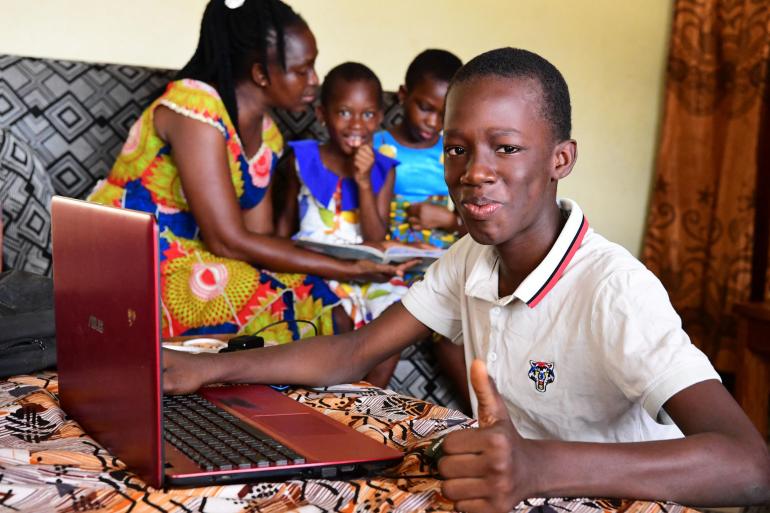NEWS
Prioritise digital learning platforms – UNICEF advices education stakeholders

In a powerful statement released on Thursday, the United Nations Children’s Fund (UNICEF) highlighted the transformative potential of digital learning platforms in Nigeria.
With the commemoration of the Day of the African Child, this year focusing on “The rights of the child in the digital environment,” UNICEF emphasized the crucial role of technology in enhancing educational opportunities for Nigerian children.
Nigeria’s education sector faces numerous challenges, and one of the most significant obstacles is limited access to quality learning resources. Insufficient domestic investment in education has resulted in inadequate school infrastructure, a shortage of qualified teachers, and prevailing poverty levels. Additionally, social norms often hinder educational opportunities, particularly for girls. Recognizing these barriers, UNICEF, in collaboration with the Federal Ministry of Education, launched the Nigeria Learning Passport (NLP) initiative last year.
The Nigeria Learning Passport is a comprehensive digital learning platform powered by Microsoft, accessible online, offline, and on mobile devices. It offers a vast array of 15,000 curriculum-aligned learning and training materials in local languages, catering to learners, teachers, and parents alike. Since its inception, the NLP has successfully provided quality teaching and learning resources to an impressive 280,000 learners, teachers, parents, and young individuals across Nigeria.
Ms Cristian Munduate, UNICEF’s Representative in Nigeria, stressed the importance of scaling up the adoption of the Nigeria Learning Passport among stakeholders in the education sector. By embracing this digital initiative, Nigeria has the potential to significantly reduce the number of children who are currently deprived of an education. Furthermore, the NLP has the power to enhance foundational literacy and numeracy skills, equipping children with essential tools for their future success.
The utilization of digital technology presents a tremendous opportunity for innovation in education. UNICEF recognizes that by embracing digitalization, Nigeria can pave the way for inclusive and high-quality education for all children. The digital environment provides a platform to revolutionize traditional learning methods, ensuring that no child is left behind in the pursuit of knowledge.
As UNICEF continues to champion the cause of children’s rights in the digital era, it calls upon stakeholders, including the government, to seize the opportunities that digitalization offers. By investing in digital learning platforms and prioritizing the integration of technology into education, Nigeria can bridge the gap in access to quality education and empower its young population for a brighter future.



























